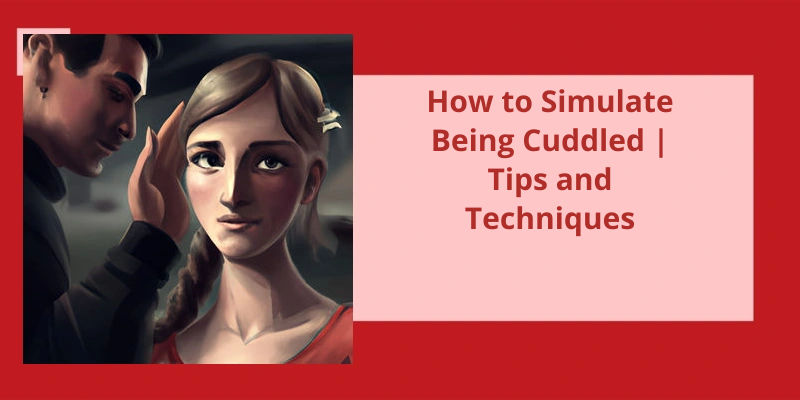What’s it called when you love someone but not romantically? It’s an intriguing and important aspect of human relationships, showcasing the capacity for individuals to foster deep connections with others without the complexities of romantic entanglements. Regardless of gender, individuals can undoubtedly maintain genuine friendships that are free from any form of sexual tension or romantic feelings. This unique type of love focuses on emotional closeness, mutual understanding, and support, emphasizing the beauty and richness of platonic bonds.
What Is an Example of Non Romantic Love?
When it comes to non-romantic love, one prime example is the love between friends. Often referred to as platonic love, this type of love encompasses deep care, importance, and emotional connection towards someone without the presence of romantic feelings. Friends hold a significant place in our lives, offering support, trust, and understanding, but the nature of these relationships remains devoid of romantic overtones.
Platonic love can be exemplified by the bond between two best friends who’ve known each other since childhood. Despite not being romantically involved, they’ve established a profound connection that transcends the boundaries of traditional relationships. They know each others strengths, weaknesses, secrets, and dreams. Their love is fortified by shared experiences, mutual respect, and unwavering support, formed through years of companionship.
Another illustration of non-romantic love can be observed within mentor-student relationships. A mentor, driven by a genuine desire to guide and inspire, extends their knowledge, wisdom, and life experiences to someone they believe has great potential. This love is purely altruistic, with the mentor finding satisfaction and fulfillment in witnessing the growth and progress of their mentee. The bond formed is one of guidance, trust, and mutual admiration, with no romantic undertones involved.
Familial love is also a quintessential example of non-romantic love. Sibling love, for instance, is characterized by a profound sense of commitment, protection, and unwavering support. While siblings may fight, bicker, and challenge one another, their love remains a steadfast force in their lives. It’s a love that transcends romantic attachment and is grounded in the shared experiences, history, and blood ties that bind them together.
Furthermore, non-romantic love can be observed in the relationships between colleagues or teammates. In a professional setting, individuals may develop strong connections based on shared goals, teamwork, and camaraderie. Colleagues and teammates become an essential support system, where individuals can rely on each other for advice, encouragement, and strength.
Lastly, non-romantic love can be witnessed in the relationship between a person and their beloved pet. The deep affection and attachment formed with pets transcend any romantic notions. Pets offer companionship, loyalty, and unconditional love, providing emotional support and becoming treasured members of the family. This type of love is pure and uncomplicated, devoid of any romantic feelings, but filled with an irreplaceable bond that enriches the lives of both human and animal.
Examples include friendships, mentor-student relationships, sibling love, collegial or team relationships, and the love between a person and their pet. These relationships are characterized by trust, support, respect, and a genuine desire for the well-being and growth of the other person or creature involved.
Non-Romantic Love in the Workplace: Examining the Significance of Strong Professional Relationships, Including Mentorship, Teamwork, and Support, in Fostering a Positive and Productive Work Environment.
- Non-romantic love in the workplace
- Examining the significance of strong professional relationships
- Including mentorship
- Teamwork
- Support
- Fostering a positive and productive work environment
Unrequited love, a complex and often heartbreaking emotion, manifests itself in various ways. It can involve loving someone who doesn’t reciprocate those feelings, yearning for someone who’s unattainable or unavailable, experiencing mutual attraction while being involved in other relationships, or longing for an ex-partner even after the relationship has ended. These different scenarios highlight the intricate facets of unrequited love and the anguish that often accompanies it.
What Is It Called When You Love Someone but Can’t Have Them?
Unrequited love, also known as unreciprocated love, is a complex and often painful experience. It occurs when someone loves another person intensely, but the feelings aren’t returned in the same way. This can leave the person in love feeling frustrated, rejected, and deeply longing for the affection they desire.
One common form of unrequited love is loving someone who simply doesn’t feel the same way. It could be a crush on a friend, a co-worker, or even a celebrity. In these cases, the person may fantasize about a romantic relationship, but the other person sees them only as a friend or acquaintance.
Another scenario is when someone pines for someone who isn’t available. This can happen when the person they love is in a committed relationship, married, or emotionally unavailable for various reasons. They may yearn for a deeper connection but can’t pursue it due to external circumstances.
Sometimes, unrequited love can occur between two people who’re both in other relationships. This mutual attraction can be intense and create a strong emotional bond, but the love can’t be acted upon due to loyalty to their respective partners.
Unrequited love can also manifest as a continued desire for an ex-partner after a relationship has ended. The person may still hold strong feelings for their former partner, hoping for a second chance or longing for the past romance they once shared.
They may struggle with letting go of their feelings and moving on. It’s crucial for individuals in these circumstances to find ways to cope, whether through self-reflection, seeking support from loved ones, or seeking professional help if needed.
These undefined romantic relationships, commonly known as situationships, exist in the gray area between committed relationships and mere friendships. They’re characterized by an emotional connection and mutual affection, yet lack the definition and commitment of a traditional partnership. Psychotherapist Jonathan Alpert sheds light on this dynamic, emphasizing that situationships occupy a unique space that’s neither purely platonic nor explicitly romantic.
What Is It Called When You Love Each Other but Not in a Relationship?
It’s called a situationship when two individuals have a deep connection and love for each other, but they aren’t in a defined romantic relationship. This term refers to a unique and often complicated dynamic that exists between two people who aren’t committed to each other but share a bond that’s more than friendship. In a situationship, there’s a level of emotional intimacy, but there are no defined expectations or labels.
In these situationships, individuals may prioritize each others emotional well-being and spend a significant amount of time together. They may confide in one another, provide support, and share their lives on a deeply personal level. However, they may also keep their relationship ambiguous, avoiding commitment or defining any romantic expectations. It’s a grey area that’s often driven by fear of commitment or a desire to maintain independence.
Situationships can be both fulfilling and challenging. On one hand, they offer the freedom to enjoy the benefits of a romantic connection without the pressures and responsibilities of a committed relationship. Both parties can explore their connection without feeling the need to conform to traditional relationship expectations. However, this undefined nature can also lead to confusion, insecurity, and potential heartbreak.
It’s important for individuals involved in situationships to communicate openly and honestly about their expectations, desires, and boundaries. Without clear communication, one or both parties may end up feeling unfulfilled or hurt. It’s crucial to regularly reassess the situationship and ensure that both individuals are on the same page emotionally.
Source: Are you in a ‘situationship’? What it’s and how to get out of it
It’s a heartbreaking reality that sometimes circumstances prevent two people from being together, but that doesn’t mean their love is doomed. Despite physical barriers or conflicting paths, true love transcends obstacles and can endure. The journey may not be easy, but if both individuals are willing to fight for their love, there’s still hope for a future together, even if it takes unconventional forms. Love knows no boundaries and can thrive even in separation or unfulfilled desires.
Is It Possible to Love Each Other but Can T Be Together?
Is it possible to love someone without romantic feelings? Absolutely. Love can take on many forms, and not all of them involve romance. In fact, there’s a term for this type of affection: platonic love. Platonic love refers to a deep and non-sexual connection between two people. It’s a love that’s built on friendship, mutual respect, and emotional support.
Sometimes, two people may have a strong bond and a deep love for each other, but circumstances prevent them from being romantically involved. This could be due to distance, timing, or other external factors. However, just because they cant be together romantically doesn’t mean that theres no future for the two of them. Love isn’t limited to romantic relationships alone.
If you truly love someone, you won’t let these obstacles stop you from continuing to love one another. Love is a powerful force that can transcend physical boundaries. It can endure through time and distance. Even if the relationship can’t progress romantically, the love and connection can still be cherished and nurtured.
In some cases, loving someone without being romantically involved can even be a blessing. It allows for the development of a deep and meaningful friendship that can last a lifetime. When love is free from romantic expectations, there’s a certain freedom and comfort that comes with it. You can fully support and care for each other without the pressures and complications that often arise in romantic relationships.
So, if you find yourself loving someone but unable to be together romantically, remember that it doesn’t mean the end of your connection. Cherish the love you’ve for each other and continue to support and care for one another. Love knows no boundaries, and true love will always find a way to endure, whether it’s romantic or not.
How to Move on and Heal When You Can’t Be With the Person You Love Romantically
- Accept your feelings and acknowledge the pain
- Allow yourself to grieve and mourn the loss
- Practice self-care and prioritize your well-being
- Seek support from trusted friends and family
- Engage in activities that bring you joy and fulfillment
- Focus on personal growth and development
- Set boundaries and limit contact if necessary
- Explore new hobbies and interests
- Consider seeking professional help or therapy
- Embrace the process of moving on and be patient with yourself
Conclusion
This is a deep and genuine affection that exists between individuals without any romantic or sexual attraction. It’s a pure and beautiful connection, based on emotional intimacy and a mutual understanding that transcends the realms of romance. Whether it be between friends, siblings, or even mentor-mentee relationships, platonic love allows us to celebrate and cherish connections that are free from the complexities of romantic entanglements.






